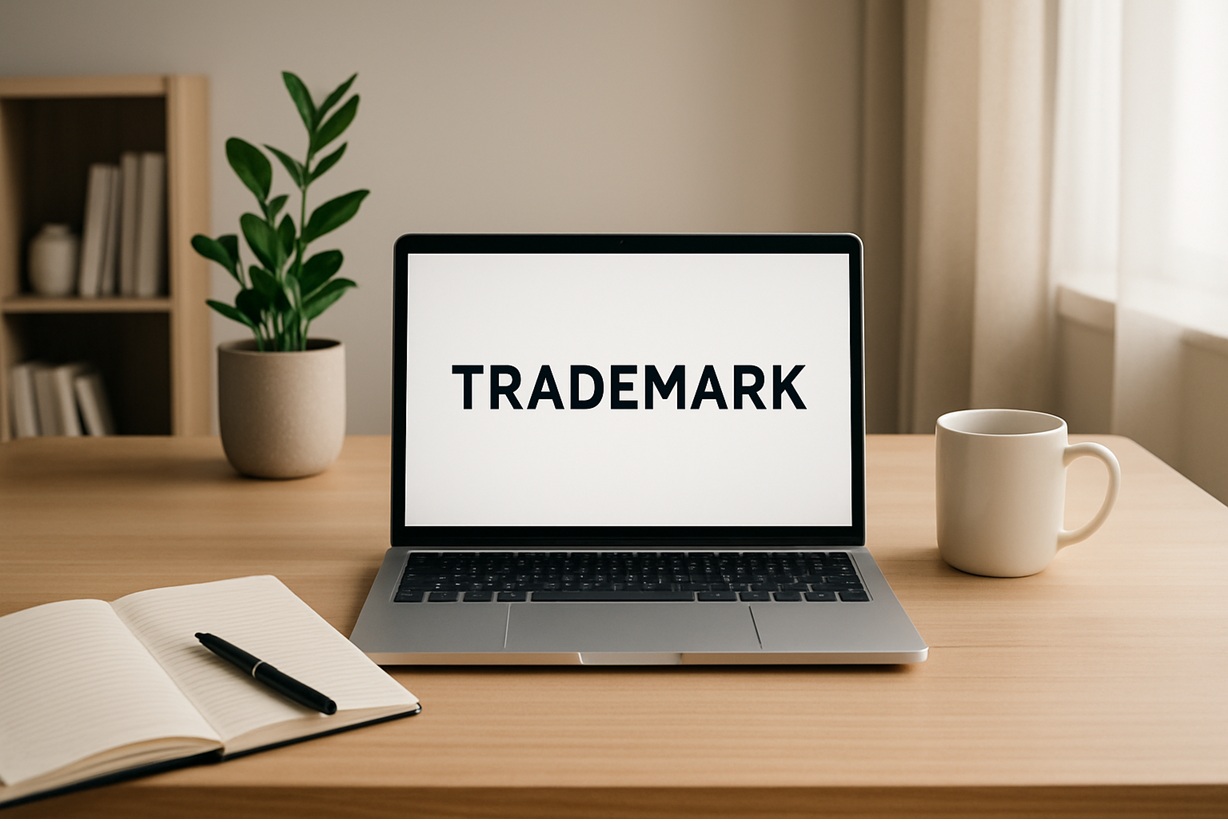Do You Need a Trademark? 6 Hacks to Protect Your Author Brand
“Trademarks are a valuable asset.” Abigail Rubinstein, Attorney
Your Author Name Is a Brand. So Protect It
You’ve poured time, creativity, and money into building your author brand. But what happens if someone else starts using your series title, publishing imprint name, or logo? That’s where a trademark comes in. This writer’s guide helps new indie authors understand what a trademark is, when it’s worth pursuing, and how to take the right steps to protect your name, work, and reputation.
(Note: This is for educational and informational purposes. It’s not intended as a substitute for a legal or financial professional advisor. Always seek the advice of a licensed professional.)
What Is a Trademark?
A trademark is a recognizable word, phrase, symbol, or design that identifies and distinguishes your brand or products. They can be registered at the federal level (with the U.S. Patent and Trademark Office) or held as common law trademarks. They help prevent confusion in the marketplace and protect your brand from misuse or imitation. For authors, that could include the following:
- Your pen name
- Your publishing imprint
- A book series title
- A logo or slogan
Why Trademarks Matter for Indie Authors
Your name and series branding are valuable assets. As your brand grows, especially if it expands beyond books, having a trademark in place can safeguard your future. Here’s how one can protect you:
- Prevents others from using your name or title in ways that could confuse readers
- Establishes legal ownership over your brand identity
- Gives you leverage to stop infringers or imitators
- Adds professionalism and trust in the eyes of readers, retailers, and collaborators
- Supports long-term growth, licensing deals, merchandise, or multimedia rights
What Can You Trademark as an Author?
Common trademarkable elements include:
| Trademarkable | Not Trademarkable |
| A unique pen name | Generic names like “Book Club” |
| A book series title | A single book title (unless part of a series) |
| A logo or symbol | A book cover design |
| A slogan (e.g., “Cozy Mysteries with a Kick!”) | Common phrases or descriptions |
Note: Single book titles aren’t eligible unless they belong to a recognized series.
When Should You Consider Registering a Trademark?
You might not need one when you’re just starting out. A good rule of thumb: if you’re treating your name or series like a brand, it’s worth protecting. It becomes more important when:
- You’re selling multiple books under a consistent pen name or series
- You’re building an imprint or branded website
- You’ve noticed others using similar names
- You plan to expand into merchandise, courses, or adaptations
- You’re investing in advertising or public appearances
Steps to Trademark Your Author Brand
You can file on your own, use a service like LegalZoom, or hire an attorney. Here’s a basic roadmap for registering a U.S. federal trademark:
- Identify what you want to protect (e.g., pen name, logo)
- Conduct a trademark search (via USPTO.gov or hire a professional)
- Evaluate your brand’s strength (the more unique, the better)
- File an application with the U.S. Patent and Trademark Office (USPTO)
- Pay the filing fee (typically $250–$350 per class of goods/services)
- Respond to any office actions or oppositions
- Monitor and enforce your trademark rights
Alternatives and Common Law Rights
Even without registration, you still have rights. If you’ve been using your author name or series consistently in commerce, you may hold what’s called a common law trademark. This means that you have some rights to your name or series, even without a formal registration. However, a common law trademark offers less protection and is harder to enforce than a registered trademark. Registering yours puts you in a much stronger legal position.
Wrap-Up: Trademark with Confidence
Your author brand is one of your most valuable assets, and protecting it can give you peace of mind and greater control over your long-term business. Trademarks aren’t only for big companies. They’re for indie authors who, like you, are serious about building your brand and expanding your platform. Whether you register now or later, understanding how trademarks work puts you in a position of strength.
We hope you’ve found the writer’s guide strategies helpful and motivating. We hope they’ll equip you with the insights and tools needed to help you succeed as a new author.
See our other writer’s guides in this series, such as Author Financials—6 Top Tips for New Indie Authors.
Writing is a journey of continuous learning and improvement. You don’t have to go it alone. We’re excited to continue the journey with you, providing guidance and encouragement every step of the way. Our goal is to provide essential insights and practical advice to help you navigate the writing world with increased confidence.
If you have a draft you want to publish and are wondering how AI can help, read it. Is Your Book Ready to Self-Publish? Lastly, for help writing a non-fiction book, read Write Your First Non-Fiction eBook: a 30-Day Workbook for Getting It Done.
Don’t wait. Start today!
How can we help? To let us know, please fill out our Contact form. Happy writing!
Checklist: Should You Trademark Your Author Brand?
- I write under a pen name or series title I want to protect
- I’ve published multiple books under this name/title
- I’ve built a recognizable author brand or publishing imprint
- I plan to expand into merchandise, licensing, or spin-offs
- I’ve seen similar names or confusion in the marketplace
- I want to establish ownership of my brand identity
- I’m prepared to invest in the filing process and maintenance
#




